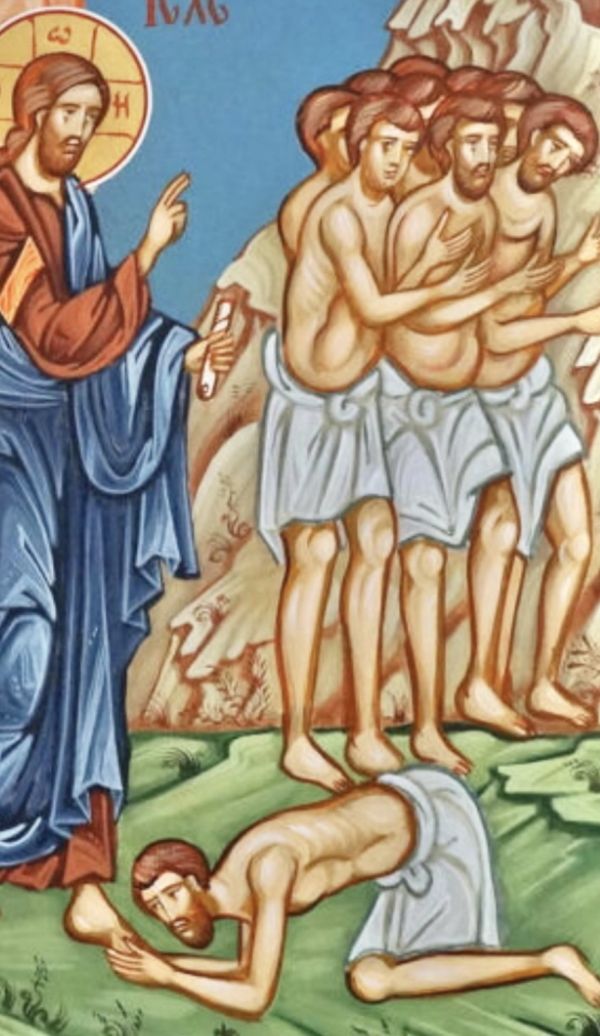Foreign glory, or religiosity giving birth to models and slaves
(LK 17:11-19)
According to the encyclical Brothers All, the custody of differences is the criterion of true fraternity, which does not annihilate the extrovert peaks.
In fact, even in a relationship of deep love and coexistence «we need to free ourselves from feeling that we all have to be alike» [Amoris Laetitia, n.139].
It will be surprising, but the meaning of the Gospel does not concern the thanks to do!
Jesus is not saddened by a lack of gratitude and good manners, but by the fact that only a stranger gives «glory to God» (v.15).
That is: he recognizes Him as his personal Lord - in a relationship, in fact, without mediation.
That personal «make-Eucharist» [...] «and fell on his face at his feet» (v.16 Greek text) has a strong, spousal meaning, of perfect reciprocity in the Way.
All within the horizon of a crucial - decisive - choice between exclusive quality life, or death.
Although marginalized by the "sacred precincts" of the Temple in the Holy City - the distant and rejected (considered bastards and enemies) immediately understand what does not disfigure the face of their humanity.
On closer inspection, in the third Gospel the models of the Faith are all "foreign": centurion, prostitute, hemorrhoid, blind; and so on.
They immediately perceive the signs of Life, signs of God!
Others more settled or attracted by normalities are content to be reintegrated into ancient and common religious practice, returning to the usual impersonal things, and to mass worship.
But those who allow themselves to be enslaved, lose track of themselves and of Christ (v.17). They become again a slave of the aligned, conventionalist mentality, not examined - and subject to ‘permanence’.
Instead, if recognized [as in the case of the Samaritan] a Presence in our favor makes us find, discover, and understand.
It proceeds unparalleled through all our moods - without remorse for duties that do not belong to us.
This Friendship makes us recover the fixed points of truly intimate human codes, strengthening - out of the line - both the system of self-recognition and the authentic and unrepeatable way of honoring God in our brothers and sisters.
In short, as we walk our very own Way with optimism and hope, we come to meet the living Christ; not to the hubbub of the [ancient or fashionable] Temple.
It no longer sends precious messages; it only notes down. It beats in the head, but does not touch us inside.
It will trap each one in a web of predictable thoughts, of enemy surveillance, induced customs; so on.
Regarding the essential divine readiness to grasp differences as wealth, we recall the teaching of the Sufi master Ibn Ata Allah, who upheld the unparalleled immediacy of the personal Colloquium - where wisdom of analysis and experience of mystical vertigo unite:
«He makes the enlightenment come upon you so that through it you may come to Him; He makes it come upon you to remove you from the hand of others; He makes it come upon you to free you from the slavery of creatures; He makes it come on you to bring you out of the prison of your existence towards the Heaven of the contemplation of Him».
New, full, and definitive Life.
People of Faith detach themselves from external religious identity: they dream, love and invent roads; they deviate and do not follow an already traced path.
[28th Sunday in O.T. (year C), October 12, 2025]












